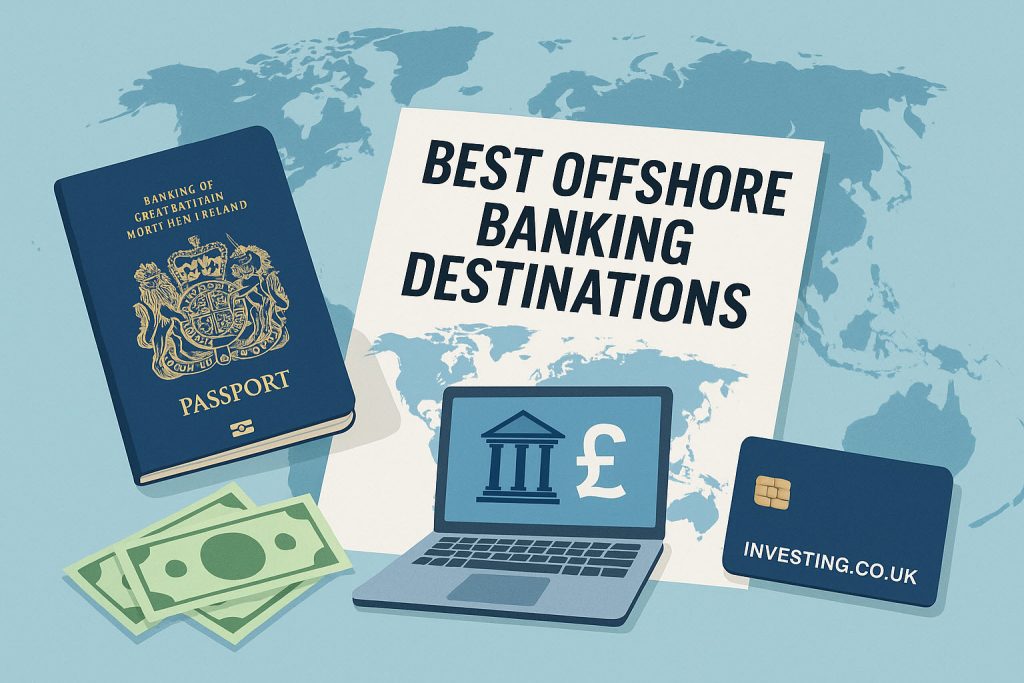Best Offshore Banking Destinations for UK Residents

Offshore banking once carried a reputation for secrecy, tax evasion, and barely-legal financial manoeuvres. Today, that narrative doesn’t hold up. Most reputable offshore jurisdictions operate under stringent international rules, automatic information exchange agreements, and compliance standards that rival or exceed those of domestic institutions. For UK residents, offshore banking isn’t about hiding money—it’s about diversification, asset protection, currency flexibility, and access to financial systems not tied to a single economy.
Having a bank account outside the UK can offer advantages for investors, business owners, expatriates, and anyone who spends a significant portion of time abroad. That said, not all offshore destinations are equal. Each comes with trade-offs in accessibility, reporting obligations, stability, and privacy. Choosing the right jurisdiction isn’t about finding the one with the fewest questions asked—it’s about finding the one that still works well within the rules.
What Makes a Destination Suitable for Offshore Banking
For UK residents, banking offshore legally involves more paperwork than it used to. All accounts must be declared on tax returns, and under CRS (Common Reporting Standard), information about foreign-held accounts is shared with HMRC. That doesn’t make offshore banking illegal or impractical—it just makes it more transparent.
What makes one jurisdiction better than another is how well it balances access, regulation, service quality, and cost. Some countries offer tight banking secrecy but limited access for non-residents. Others welcome foreign capital but charge hefty maintenance fees. A few strike the right balance between international compliance and client-friendly service structures.
Singapore: Stability, Security, and Global Access
Singapore consistently ranks as one of the best offshore banking destinations for UK residents due to its financial strength, political stability, and world-class banking infrastructure. The country has strict regulations, but it’s also known for being business-friendly. Banks there offer multi-currency accounts, strong privacy protections, and easy integration with international investment platforms.
It’s not the cheapest place to bank offshore, and account setup can require an in-person visit. But for individuals looking for reliability over flexibility, Singapore remains a serious contender.
Switzerland: Still Relevant—But Not for Secrecy
Switzerland isn’t the black box it once was. The country’s banks now participate in international information sharing, but they haven’t lost their edge when it comes to service, stability, and investment-grade banking. For high-net-worth individuals, Swiss banks offer customised portfolios, wealth management, and global currency accounts.
What makes Switzerland attractive isn’t secrecy—it’s quality. You’re paying for the infrastructure, the reputation, and the ability to work with professionals who’ve handled cross-border clients for decades. It’s best suited for those seeking long-term asset preservation, not quick transfers or transactional accounts.
Isle of Man and Jersey: Local and Accessible
For UK residents who want something offshore but geographically and legally close to home, the Isle of Man and Jersey offer practical alternatives. Both are Crown Dependencies with independent banking regulation, yet they maintain strong ties to UK legal systems.
Opening an account tends to be easier, especially for those with UK addresses and proof of income. They’re not particularly secretive or exotic, but they do provide international diversification without the tax complexity of more distant jurisdictions.
The Caribbean Options: Cayman Islands and Bahamas
Caribbean offshore banks still attract clients due to favourable tax laws and longstanding reputations for international finance. The Cayman Islands, in particular, has modern digital banking tools, asset protection trusts, and a mature legal framework. That said, it’s a destination better suited for corporate accounts or specialised asset protection strategies. Retail clients may face high minimum deposit requirements and ongoing fees.
For individuals with business interests, property abroad, or retirement plans outside the UK, the Caribbean still offers legitimate use cases. Just don’t mistake it for a tax-free loophole—it isn’t.
Considerations Before Opening an Account
Offshore banking is legal, but it isn’t anonymous. UK residents are required to report foreign-held accounts to HMRC, and any income or interest earned must be declared. Compliance is straightforward but non-negotiable.
Before opening an offshore account, it’s worth comparing jurisdictions and banking options based on your goals. Whether it’s currency diversification, cross-border payments, or protecting cash from UK-centric risks, the right destination will depend on what you need—and what you can maintain.
A good starting point for comparing offshore banking options from a UK perspective is Investing.co.uk They provide straightforward information on account requirements, jurisdiction benefits, and the pros and cons of different financial hubs, all tailored to UK residents looking for alternatives beyond domestic banks.
Offshore Isn’t a Shortcut—It’s a Strategy
Banking offshore doesn’t offer shortcuts anymore. There are no secret accounts, no hidden vaults, and no tax-free havens immune to oversight. What offshore banking offers UK residents today is a legitimate, structured way to spread financial exposure and access tools that local banks often don’t provide.
For those managing international income, living abroad part-time, or building wealth outside of GBP-linked systems, it still makes sense. You just have to do it with eyes open—and paperwork in order. The benefits are still there, just not hidden.
This article was last updated on: September 5, 2025
